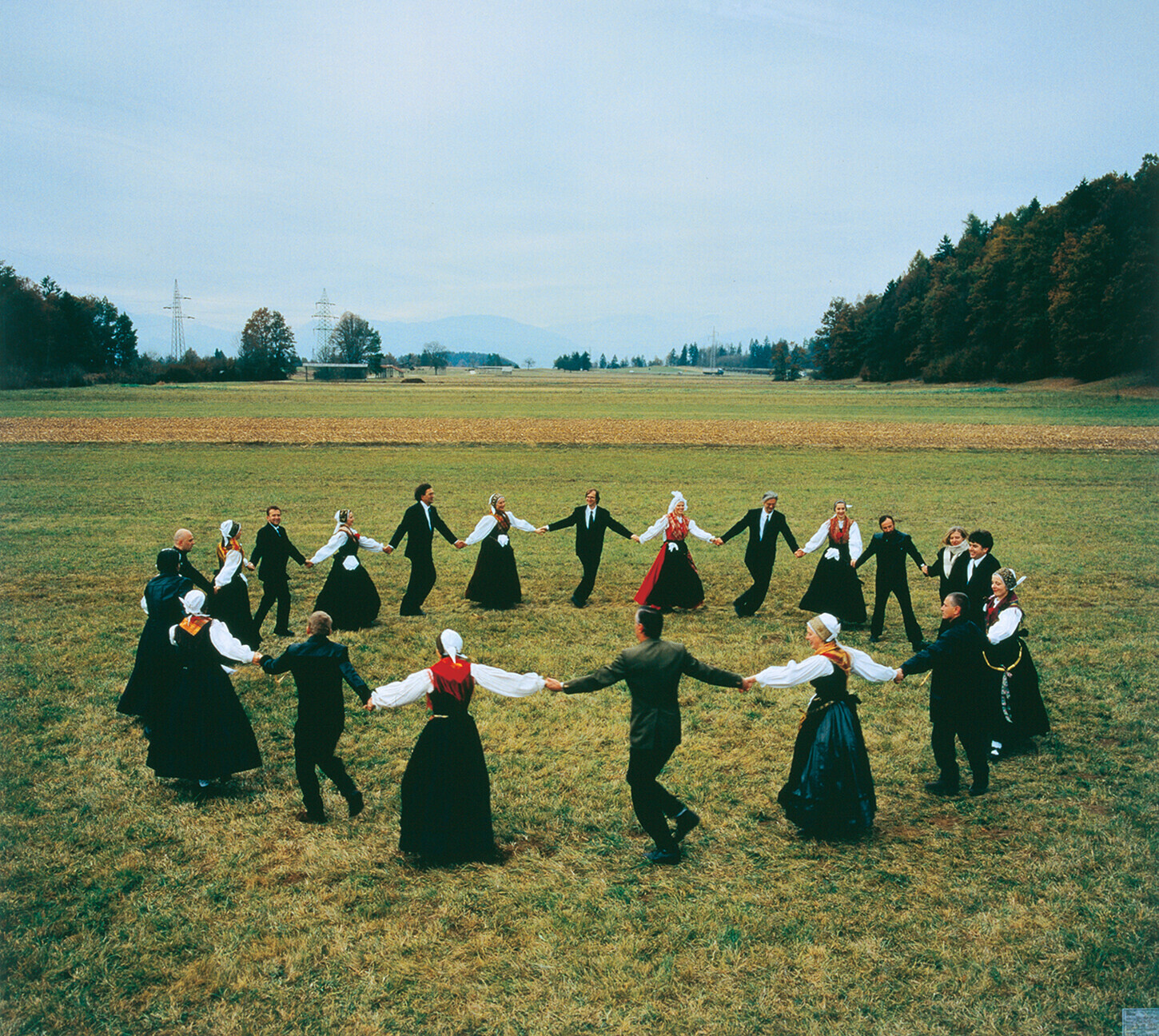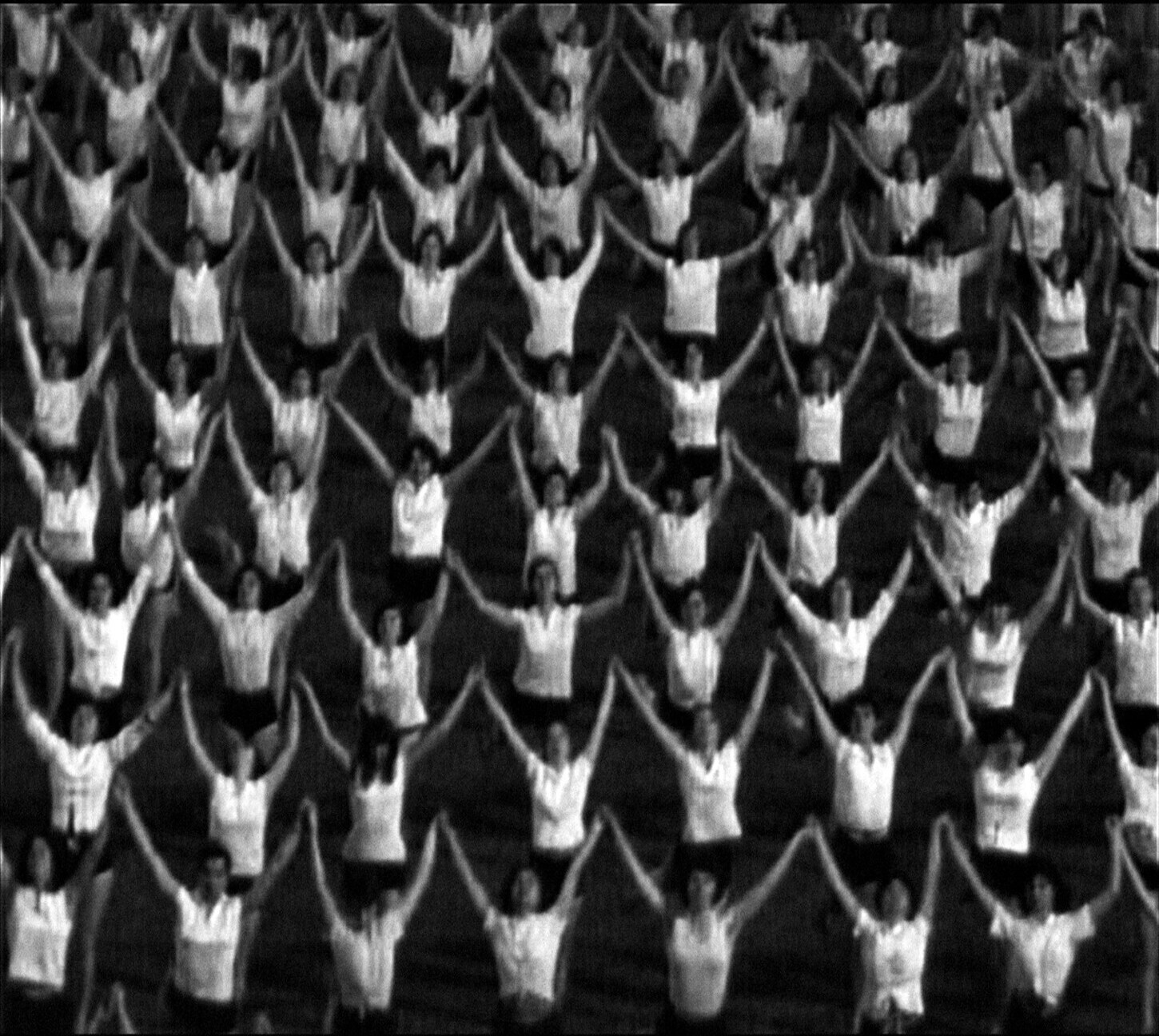Jace Clayton Read Bio Collapse
Jace Clayton is an artist and writer based in New York, also known for his work as DJ /rupture. He is the author of Uproot: Travels in 21st Century Music and Digital Culture (Farrar, Straus and Giroux, 2016) and is Director of Graduate Studies at the Milton Avery Graduate School of the Arts.
Social scientists regularly work in study groups and research groups. They develop theses and propositions and experiments based on group work. Whereas we in the humanities are trained not to do this. We are trained to write in a single voice. It was very interesting to me last semester teaching a class with practice-of-art students called “Radical Composition.” From the very beginning, students were divided into groups of three, and each group had to create a radical composition in response to a series of assigned visual, sonic, and written texts. They were musicians and visual artists and movement artists and art historians and African American Studies students. And they all said the same thing: we’ve never been taught how to work in a group. We have our single-person senior shows. We produce our own body of work. Sometimes we help each other out, but it’s not multiauthored. We don’t all take credit.
Bennani replaced the singing with canned screams and nothing else. There’s no faint rustle of the crowd, as in the original footage, for example. Nor has she applied any reverb, which would create the effect of the vocalists inhabiting the same acoustic space. All the members of this choir howl in isolation—from the world (there’s no diegetic sound) and from each other (there’s no reverb). A crowd vocalizing with none of the subtle audio cues that let us know we are in a crowd: Bennani’s audio treatments mirror the eerie social alienation that is only possible in digital domains.
Mallory Kimmel
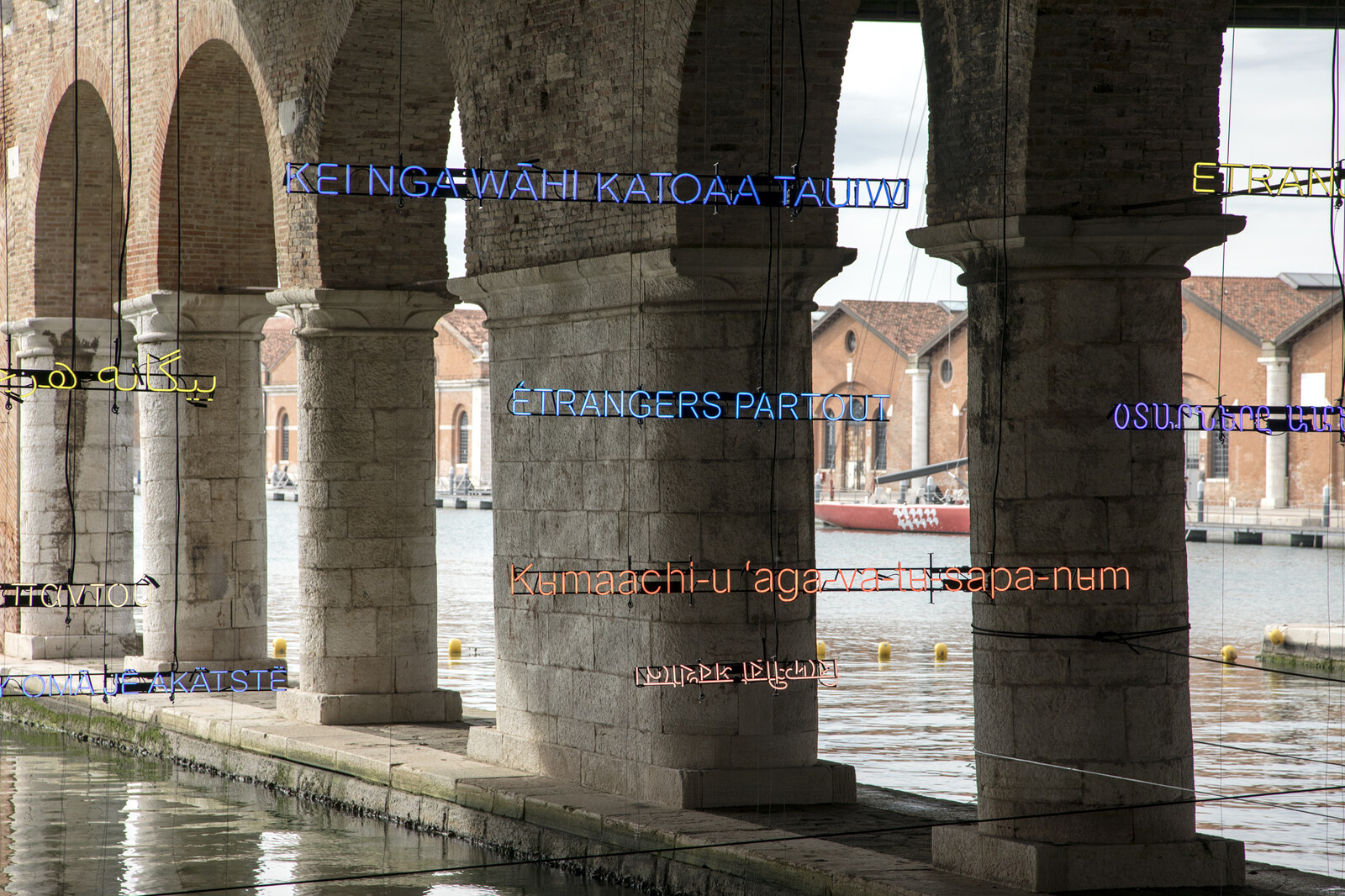

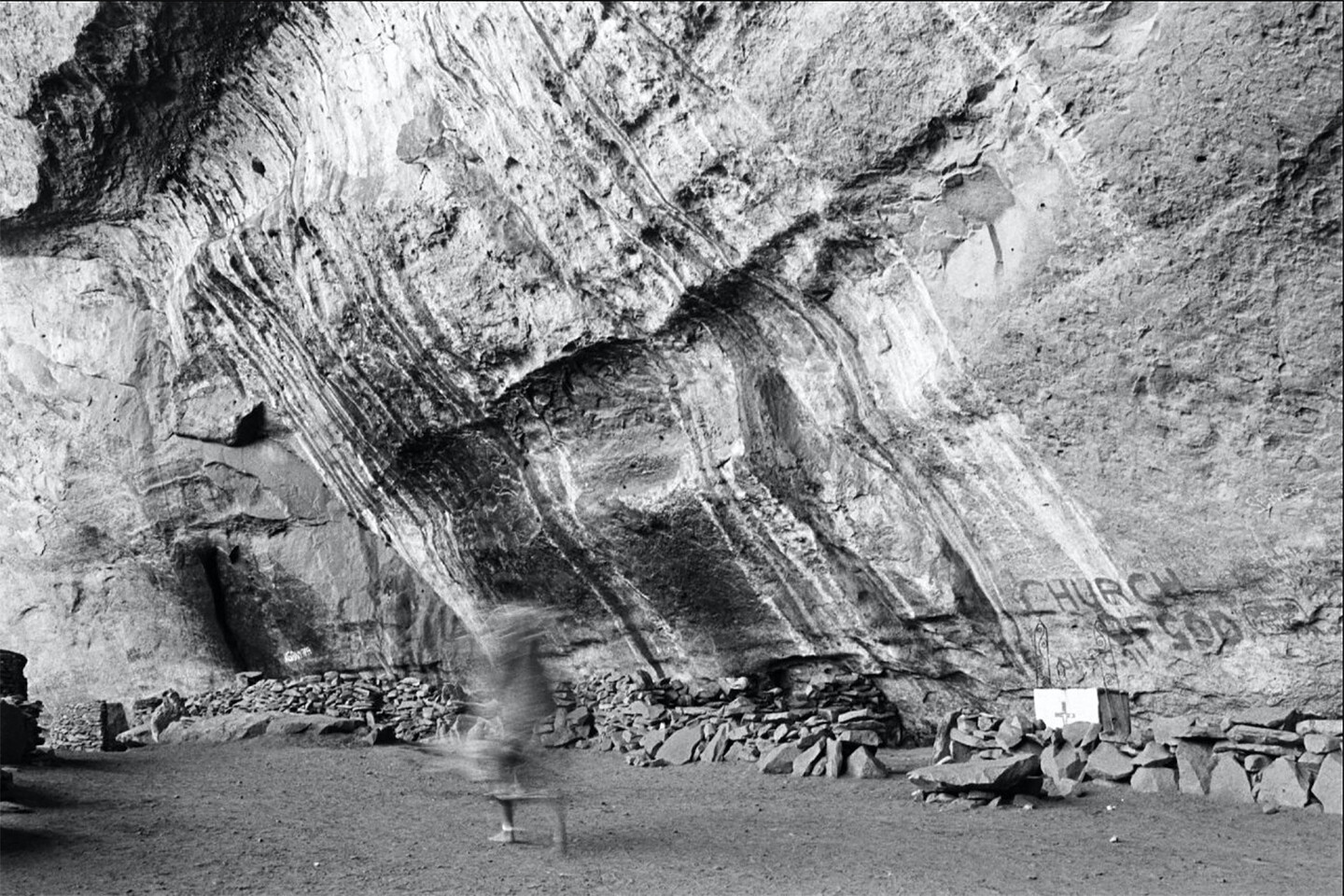
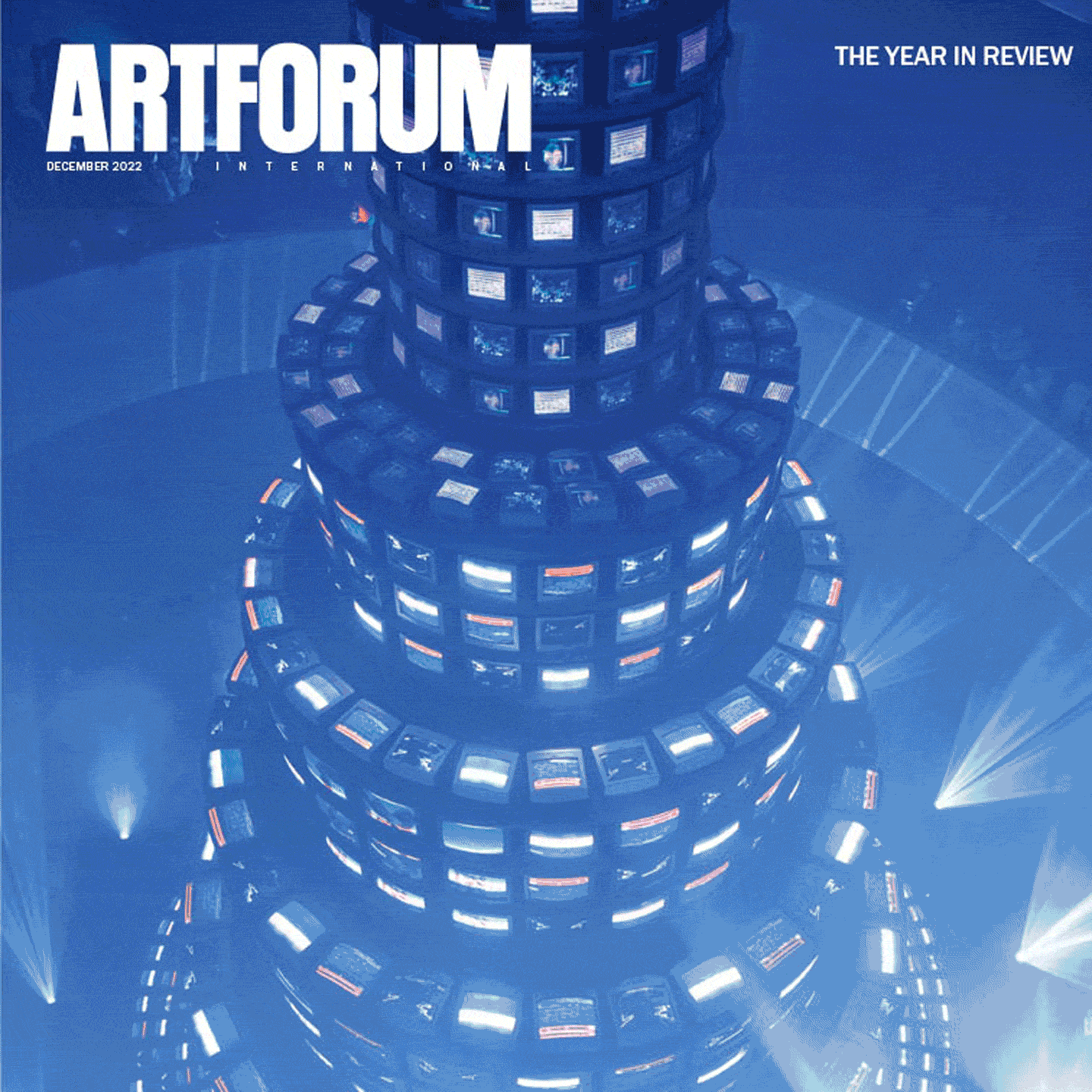






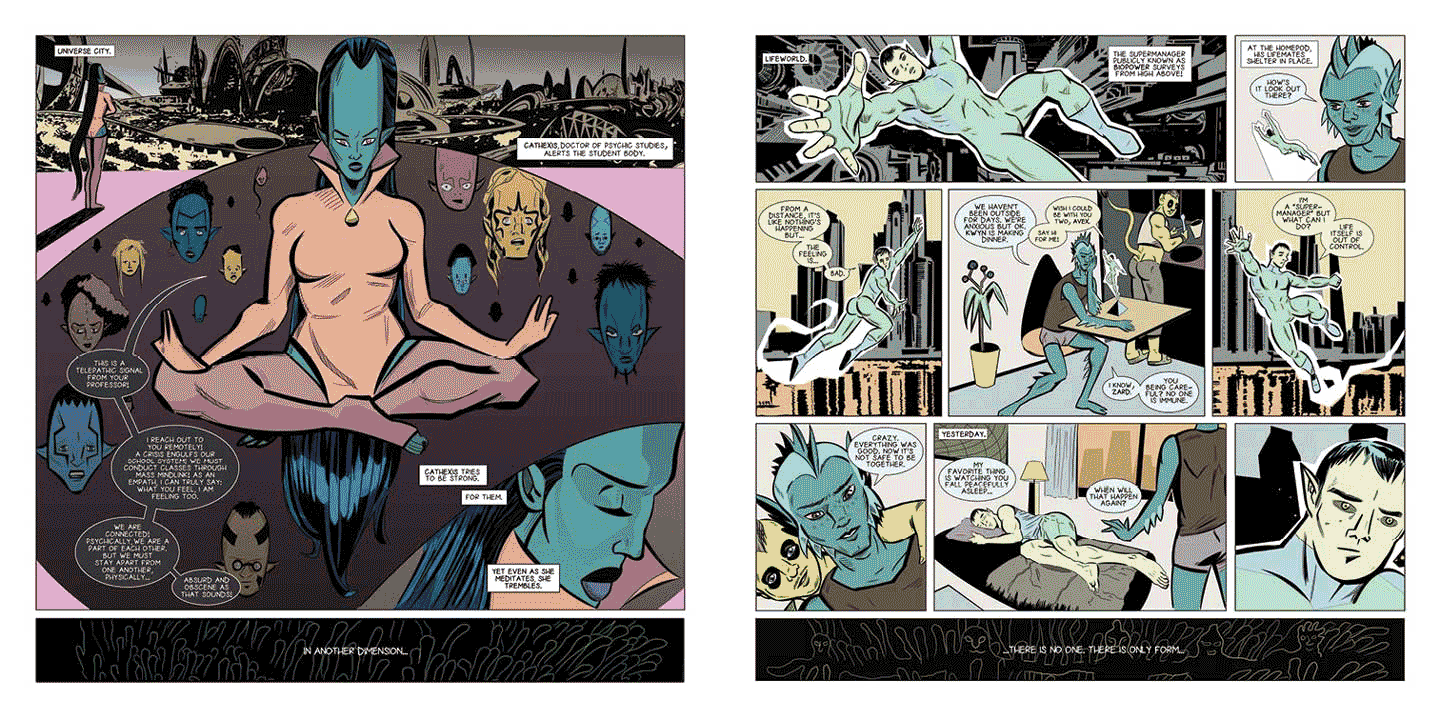

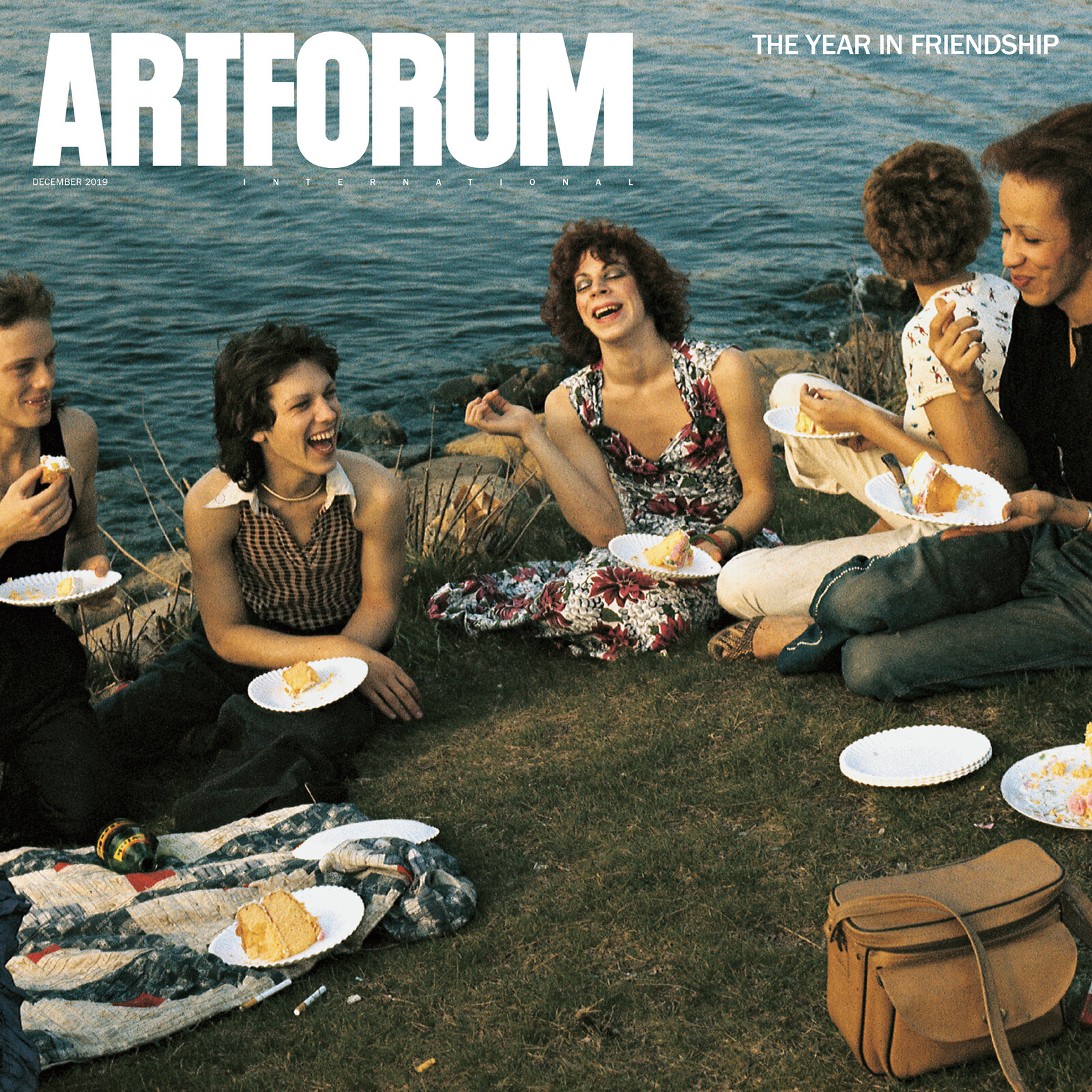


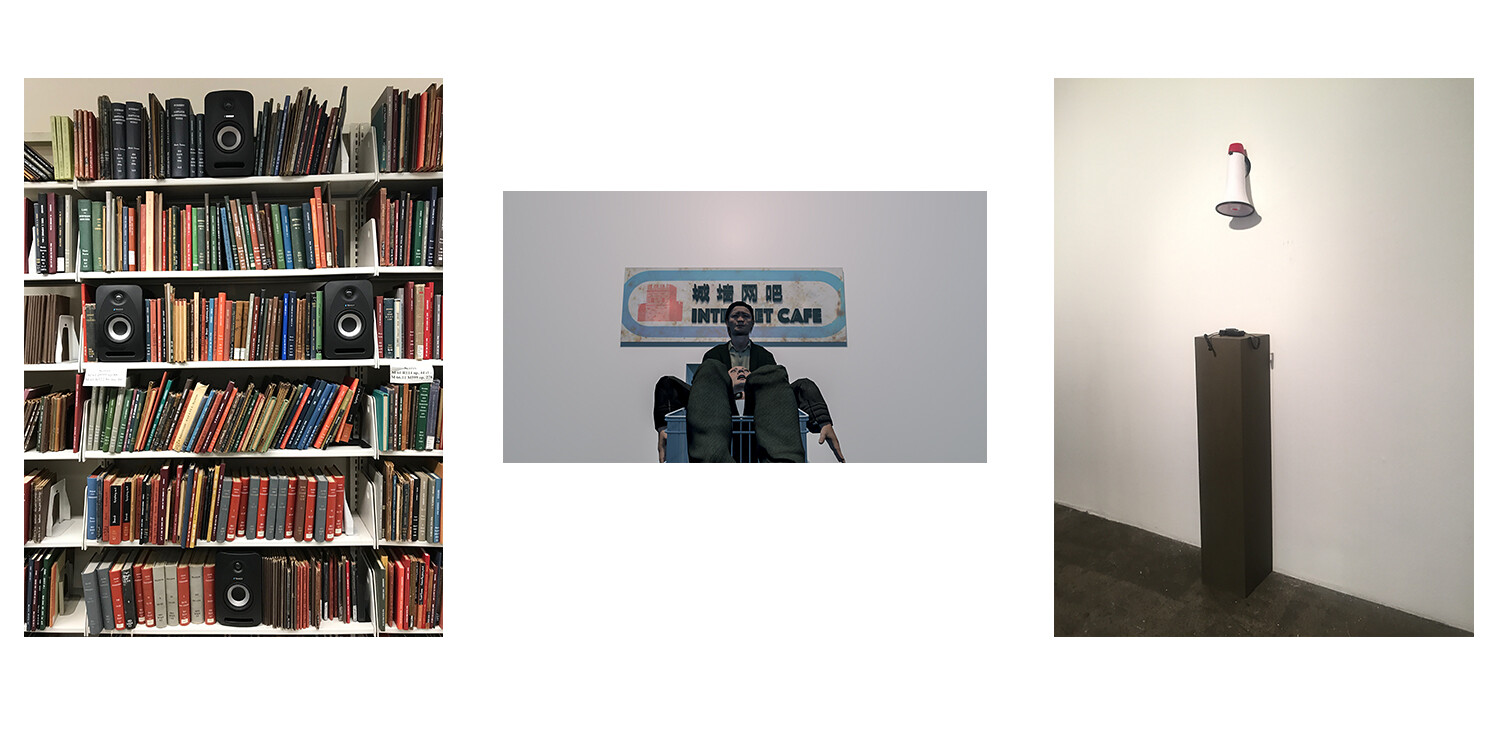


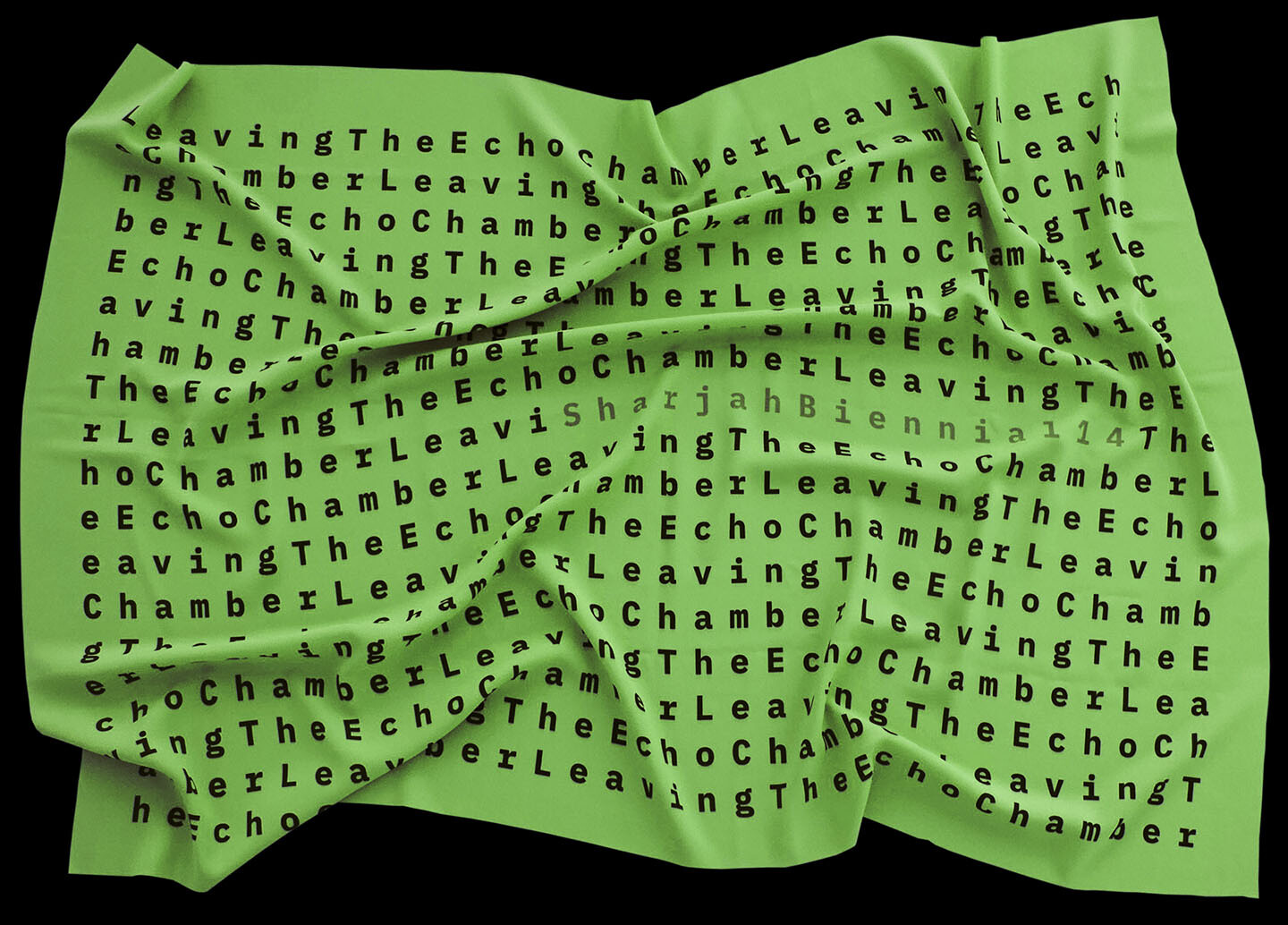




%20Kai%20Bienert.jpg,1600)


